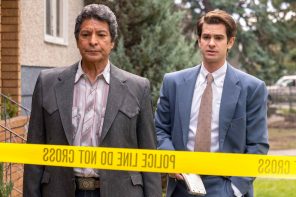Yesterday at the New York Review of Books, Garry Wills used his recollections of a decades-old dialogue with a Mormon college student to raise concerns about the way a President Mitt Romney might regard, interpret, and apply the US Constitution.
According to Wills, an 18-year-old Mormon student once told him that:
“Like his fellow Mormons, he held that the Declaration of Independence is divinely inspired—in that sense, it is part of Mormon Scripture.”
Except for the fact that it really isn’t part of Mormon scripture, either in doctrine or practice.
Wills continues:
The young man was learning Portuguese, to do his missionary year in Brazil, for which he left before graduation. When, after a year, he came back to complete his studies, he took more of my classes and we had further discussions. I wondered if amendments to the Constitution were also inspired. He was a little uncertain, but I think he decided they were not. That poses problems I have often thought of since. For instance, the Constitution rated a slave as only three-fifths of a person. Did that have anything to do with Mormon reluctance, in the past, to admit blacks to full equality?
No. It really didn’t.
And Mormon missions are two years, not one.
And just about no one receives their mission call in time to enroll for language preparation classes during their freshman year of college. Missionaries do their language training at the LDS Church-run Missionary Training Center. This is, of course, not to accuse Wills of fabrication, but it does qualify his recollection of the events in question.
Day after day, week after week, inaccuracies small and grand continue to materialize even in the work of award-winning journalists in top-notch publications.
Peggy Fletcher Stack noted several minor but glaring inaccuracies in Jodi Kantor’s front-page Sunday New York Times feature on Mitt Romney’s Mormonism. Like the fact that the word “Deseret” is never used as an adjective. And Mormons don’t sing “What a Friend We Have in Jesus.” It’s not in the hymnbook.
Another friend who works in public radio in Utah alerted me that a New York Times reporter called the “LDS Church” the “LSD Church” in a multimedia presentation that went along with its otherwise fine piece on African-American Mormons.
Mormons, we’re busy and pragmatic people. We laugh about the little stuff. (And believe me, we’ve heard the one about the LDS and the LSD before.)
It’s a bigger problem when journalists misconstrue Mormon doctrine in the service of political critique, as did Wills. Yes, Mormon leaders have taught that the Constitution was “divinely inspired,” and many Mormons believe it. But that belief is not really a point of doctrine. Neither the Constitution nor the Declaration of Independence are Mormon scripture. Not to millions of Mormons who live in the US, and certainly not to the millions of Mormons who live in other nations around the globe.
But the biggest disappointment in Wills’s essay is the shoddy formula at its core:
20 years ago, I knew this 18-year-old Mormon kid. Real good kid. He said [fill in the blank], so [fill in the blank] must be doctrine, and Mitt Romney must believe [fill in the blank] too. And because of [fill in the blank], we should be worried about a Romney presidency.
Try it out with any other religion or ethnic group, and see how that sounds.
Garry Wills and his readers at the NYRB may indeed have plenty to worry about from a Romney presidency. But the best way to get a sense of how Romney would govern is to look at Mitt Romney’s actual record. And the best way to get a sense of what Mormon doctrine really is and what it might mean to Romney’s presidency is to ask actual experts. Experts—Mormon and non-Mormon scholars of Mormon experience—do exist.
If I wanted to get a decent sense of how Mormons relate to law and politics, I might check in with Professors Sally Gordon, Nate Oman, Phil Barlow, or Patrick Mason. They’re all pretty busy this season, but it’s probably worth a call. At the very least, I would use the website LDS.org, which offers a searchable database of talks and writings by church leaders on various subjects over the years. Had Wills done so, he would have quickly located a talk by Elder Dallin H. Oaks, a high-ranking church leader and Constitutional scholar, who in 1992 spoke directly to what is and what is not inspired in the Constitution from an LDS perspective:
Reverence for the United States Constitution is so great that sometimes individuals speak as if its every word and phrase had the same standing as scripture. Personally, I have never considered it necessary to defend every line of the Constitution as scriptural. For example, I find nothing scriptural in the compromise on slavery . . . . President J. Reuben Clark, who referred to the Constitution as ‘part of my religion,’ also said that it was not part of his belief or the doctrine of the Church that the Constitution was a ‘fully grown document.’ ‘On the contrary,’ he said, ‘We believe it must grow and develop to meet the changing needs of an advancing world.’ That was also the attitude of the Prophet Joseph Smith.
That would have been a helpful tidbit for Wills’s column. But if there’s no time for phone calls or web searches, well, at the very least, there are fact-checkers. And here’s a modest proposal for the editors at the New York Review of Books and the New York Times and every other publication that will be running a lot of Mormon content this campaign season but has no Mormons on its editorial staff: Hire a Mormon fact checker.
There are a number of advanced graduate students in Mormon Studies—many studying at very fine secular institutions. They know Mormon history, doctrine, and culture. They know it from scholarship, and they know it from experience. Real good kids. (And some of them have kids of their own to feed.) Put one or two of them on retainer through December. Let them proof your Mormon-related copy for you. They have their work cut out for them.




